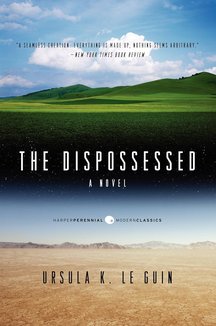Recommended Books

Pirate Enlightenment, or the Real Libertalia
Author:
David Graeber
ISBN 13:
978-0374610197
The final posthumous work by the coauthor of the major New York Times bestseller The Dawn of Everything . Pirates have long lived in the realm of romance and fantasy, symbolizing risk, lawlessness, and radical visions of freedom. But at the root of this mythology is a rich history of pirate societies―vibrant, imaginative experiments in self-governance and alternative social formations at the edges of the European empire. In graduate school, David Graeber conducted ethnographic field research in Madagascar for his doctoral thesis on the island’s politics and history of slavery and magic. During this time, he encountered the Zana-Malata, an ethnic group of mixed descendants of the many pirates who settled on the island at the beginning of the eighteenth century. Pirate Enlightenment, or the Real Libertalia , Graeber’s final posthumous book, is the outgrowth of this early research and the culmination of ideas that he developed in his classic, bestselling works Debt and The Dawn of Everything (written with the archaeologist David Wengrow). In this lively, incisive exploration, Graeber considers how the protodemocratic, even libertarian practices of the Zana-Malata came to shape the Enlightenment project, which for too long has been defined as distinctly European. He illuminates the non-European origins of what we consider to be “Western” thought and endeavors to recover forgotten forms of social and political order that gesture toward new, hopeful possibilities for the future.

The Dispossessed: A Novel (Hainish Cycle)
Authors:
Ursula K. Le Guin
,
Karen Joy Fowler
ISBN 13:
978-0060512750
One of The Atlantic ’s Great American Novels “One of the greats. . . . Not just a science fiction writer; a literary icon.” — Stephen King “Engrossing . . . Ursula Le Guin is more than just a writer of adult fantasy and science fiction . . . she is a philosopher; an explorer in the landscapes of the mind.” — Cincinnati Enquirer Ursula K. Le Guin’s Hugo, Locus, and Nebula Award–winning classic, a profound and thoughtful tale of anarchism and capitalism, individualism and collectivism, and one ambitious man’s quest to bridge the ideological chasm separating two worlds. The Dispossessed is the spellbinding story of anarchist Shevek, the “galactically famous scientist,” who single-handedly attempts to reunite two planets cut off from each other by centuries of distrust. Anarres, Shevek’s homeland, is a bleak moon settled by an anarchic utopian civilization, where there is no government, and everyone, at least nominally, is a revolutionary. It has long been isolated from other worlds, including its mother planet, Urras—defined by warring nations, great poverty, and immense wealth. Now Shevek, a brilliant physicist, is determined to unify the two civilizations. In the face of great hostility, outright threats, and the pain of separation from his family, he makes an unprecedented trip to Urras. Greater than any concern for his own wellbeing is the belief that the walls of hatred, distrust, and philosophic division between his planet and the rest of the civilized universe must be torn down. He will seek answers, question the unquestionable, and explore differences in customs and cultures, determined to tear down the walls of hatred that have kept them apart. To visit Urras—to learn, to teach, to share—will require great sacrifice and risks, which Shevek willingly accepts. Almost immediately upon his arrival, he finds not the egotistical philistines he expected, but an intelligent, complex people who warmly welcome him. But soon the ambitious scientist and his gift is seen as a threat, and in the profound conflict that ensues, he must reexamine his beliefs even as he ignites the fires of change.
Find on:
 Amazon
Amazon

Gender and the Politics of History (Gender and Culture Series)
Author:
Joan Wallach Scott
ISBN 13:
978-0231188012
This landmark work from a renowned feminist historian is a foundational demonstration of the uses of gender as a conceptual tool for cultural and historical analysis. Joan Wallach Scott offers a trenchant critique of the compartmentalization of women’s history, arguing that political and social categories are always fundamentally shaped by gender and that questions of gender are essential to considerations of difference in history. Exploring topics ranging from language and class to the politics of work and family, Gender and the Politics of History is a vital contribution to feminist history and historical methodology that also speaks more broadly to the ongoing redefinition of gender in our political and cultural vocabularies. This anniversary edition of a classic text in feminist theory and history shows the evergreen relevance of Scott’s work to the humanities and social sciences. In a new preface, Scott reflects on the book’s legacy and implications for contemporary politics as well as what she has reconsidered as a result of her engagement with psychoanalytic theory. The book also includes a previously unpublished essay, “The Conundrum of Equality,” which takes up the question of affirmative action.